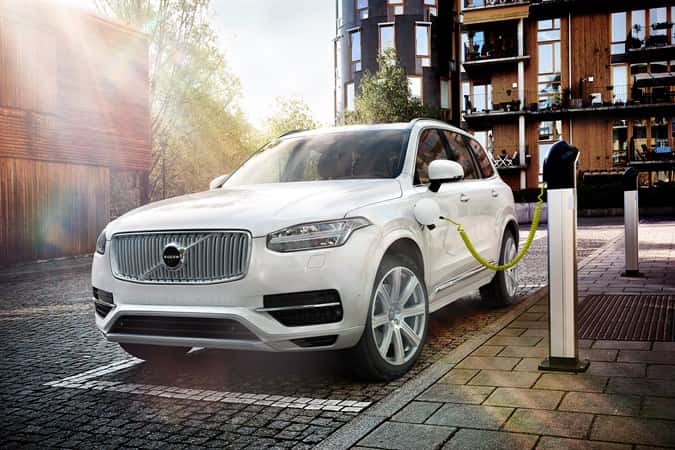Volvo Cars has put out a call to action for the auto industry to strive toward the introduction of a standardized charging infrastructure for electric vehicles (EVs) and plug-in hybrids.
Volvo says it has decided to throw its weight behind the Charging Interface Initiative, a consortium of stakeholders that was founded to establish its Combined Charging System (CCS) as the standard for charging battery-powered vehicles.
The Swedish automaker says it will offer a plug-in hybrid variant on every new model as it replaces its entire product portfolio in the coming years. It will also introduce a full EV based on its modular SPA vehicle architecture by 2019.
“We see that a shift towards fully electric cars is already under way, as battery technology improves, costs fall and charging infrastructure is put in place,” says Dr. Peter Mertens, senior vice president of research and development for Volvo. “But, while we are ready from a technology perspective, the charging infrastructure is not quite there yet. To really make range anxiety a thing of the past, a globally standardized charging system is sorely needed.”
Besides the CCS Charger, there are three other kinds of commonly used EV chargers:
- The CHAdeMO DC fast-charger, which is favored by Japanese automakers, such as Nissan, that can deliver up to 62.5 kW of power;
- The SAE J1772 charger, preferred by American and German automakers, that is capable of delivering up to 100 kW of power; and
- The Tesla Supercharger, which can only be utilized by Tesla vehicles currently but can deliver upward of 120 kW.
The CCS Combo charger is a variant of the J1772 design but has the ability to plug into both slow and fast chargers utilizing a single outlet, unlike the CHAdeMO design, which requires separate outlets for slow or fast charging.
It combines single-phase charging with rapid three-phase charging, using alternating current at a maximum of 43 kW, as well as direct-current charging at a maximum of 200 kW and the future possibility of up to 350 kW – all in a single system.
The Charging Interface Initiative is currently in the process of drawing up requirements for the evolution of charging-related standards and certification for use by carmakers around the globe.







